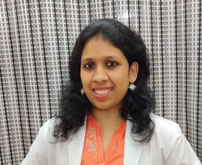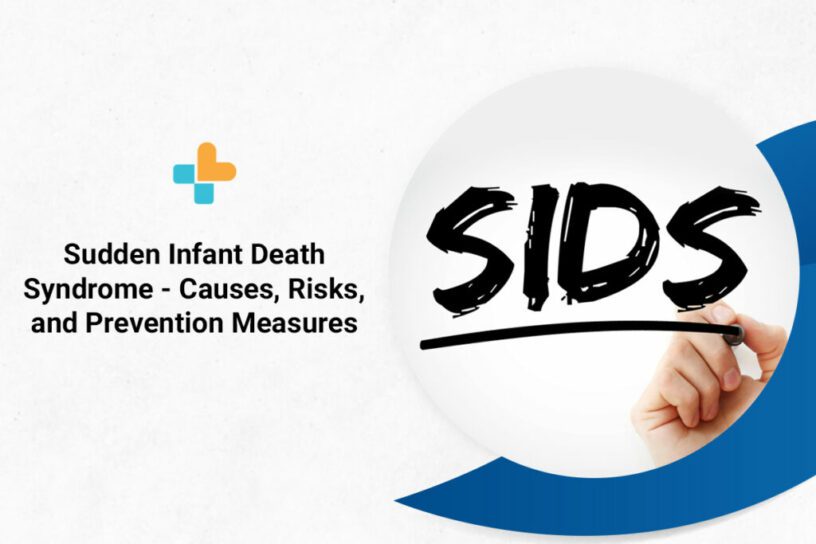Expectant parents are often concerned about the health and well-being of their newborns. With so many diseases and syndromes plaguing the human race and the kind of diseases that can affect newborns, expecting parents have numerous worries that take shape even before the birth of their child. Among the different ailments, the ones that have fatal consequences on the infant need more attention, one such being Sudden Infant Death Syndrome.
What is Sudden Infant Death Syndrome (SIDS)?
Sudden Infant Death Syndrome or SIDS for short, is the untimely and unexplained death of a healthy newborn. SIDS typically occurs while an infant is asleep, which is why it is also known as “crib death” or “cot death”.
Although sudden infant death syndrome causes are undetermined and can be difficult to predict, SIDS appear to be connected to problems in the area of an infant’s brain that controls breathing and waking up from sleep. Most SIDS-related deaths take place within the first 6 months of an infant’s life with a large number of them occurring between 1-4 months. Babies born prematurely or having a relatively lower birth weight are at a higher risk. According to data collected in 2019, 32 infant deaths occur due to SIDS per 1000 live births in India.
What are the possible causes of SIDS?
Though the exact cause of SIDS is unknown there is a combination of physical and sleep-related environmental factors that are believed to be the major factors that can lead to sudden infant death syndrome.
Physical factors
- Brain defects
The part of the brain that controls breathing and sleep cycles is not developed underdeveloped.
- Low birth weight
Infants that are part of multiple births or born prematurely can have underdeveloped brains and lead to issues like lower breathing and heart rate.
- Infection-related to Respiration
Another factor that affects a small number of newborns is a cold contracted shortly before SIDS, which could interfere with breathing.
Sleep-related factors
- Soft surfaces
A reason for SIDS can be when infants lie face down on a soft surface such as a squishy mattress, blanket or sofa which can block the infant’s airway.
- Sleeping position
Babies placed on their stomachs or on their sides will be more likely to have difficulty breathing than those placed on their backs.
- Sharing sleeping space
Babies that share a bed with parents or siblings have a higher risk of SIDS than babies that sleep in a separate bed or cradle. However, the risk of SIDS is lower when a baby sleeps in the same room as the parents.
What are the risks of Sudden Infant Death Syndrome?
There are several risk factors that can increase the susceptibility of an infant to SIDS
Maternal Risk factors
During pregnancy, the mother influences her baby’s risk of SIDS, especially if she:
- Smokes tobacco
- Is below the age of 20
- Consumes alcohol or drugs
Other risk factors
- Sex: Male infants are more likely to die of SIDS than female infants
- Age: Infants between 2-4 months are at a higher risk of SIDS.
- Family history: Infants whose immediate family has died of SIDS are more prone to SIDS-related death.
- Smoke: Babies who inhale secondhand smoke have a higher affinity to SIDS.
How do you prevent SIDS?
There are certain do’s and don’ts that can reduce the incidence and risks of Sudden Infant Death Syndrome.
Do’s
- Always put your infant to sleep on their back
- Make sure the baby’s head is not covered, the blanket should always be tucked at their shoulders
- Place the baby in the “feet to foot” position, where their feet touch the end of the cradle, cot or pram.
- Ensure that the mattress the baby sleeps on is flat, firm and hygienic.
- Keep the baby’s cradle or bed in your room for the first 6 months.
- Breastfeed the baby whenever possible.
Don’ts
- Do not sleep on the same bed or sofa as the baby is sleeping on, especially if the baby has a low birth weight (under 2.5 kg)
- Do not smoke or drink during pregnancy and make sure that the baby is in a smoke-free environment post-birth.
- Make sure your baby is not too hot or cold so that he/she sleeps comfortably.
The possibility of your baby developing SIDS is concerning, but SIDS is rare and the likelihood of your infant dying from it is low. Even so, it is important to consider all these risk factors and prevention measures during pregnancy and post-delivery so as to avoid sudden infant death syndrome. Even so, it is best to have a personal gynecologist so that your baby and the mother are in the best health. A great way to ensure this is to visit the best gynecologist in Bangalore at Ayu Hospital. Visit Ayu Health to book an appointment or call us at +91 – 6366 100 800 for a consultation.
Read more: Sudden Infant Death Syndrome – Causes, Risks and Prevention Measures
Our Hospital Locations
Gynaecology Surgery Hospitals in Chandigarh | Gynaecology Surgery Hospitals in Bangalore | Gynaecology Surgery Hospitals in Jaipur | Gynaecology Surgery Hospitals in NCR | Gynaecology Surgery Hospitals in Hyderabad
Our Doctors
Gynaecology Surgery Doctors in Chandigarh | Gynaecology Surgery Doctors in Bangalore | Gynaecology Surgery Doctors in Jaipur | Gynaecology Surgery Doctors in NCR | Gynaecology Surgery Doctors in Hyderabad
About the Author

Dr. Nikitha Murthy B.S.
Dr. Nikitha Murthy B.S. is a renowned Gynaecologist currently practicing at Ayu Health, Bangalore.
He is s a Consultant with IVF Access at its Rajajinagar clinic. She has over 6 years of experience. Dr. Nikitha has a post-graduation (MS) in Gynaecology, DNB from the National Board of India, and a Fellowship in Reproductive Medicine. He also has vast experience in Post-Graduation (MS) in Gynaecology and DNB.




